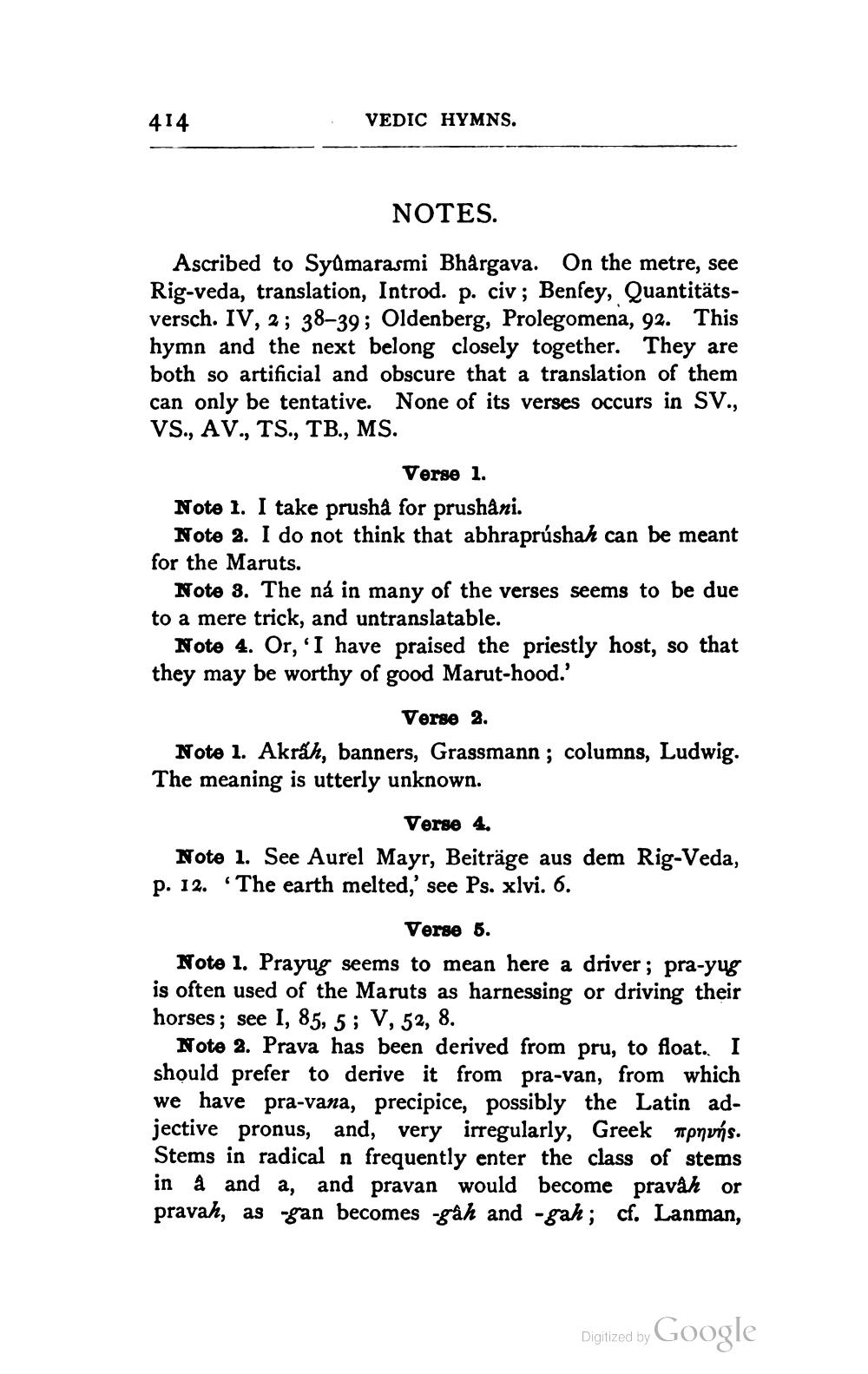________________
414
VEDIC HYMNS.
NOTES.
Ascribed to Syâmarasmi Bhargava. On the metre, see Rig-veda, translation, Introd. p. civ; Benfey, Quantitätsversch. IV, 2; 38-39; Oldenberg, Prolegomena, 92. This hymn and the next belong closely together. They are both so artificial and obscure that a translation of them can only be tentative. None of its verses occurs in SV., VS., AV., TS., TB., MS.
Verse 1.
Note 1. I take prushâ for prushâni.
Note 2. I do not think that abhraprúshah can be meant for the Maruts.
Note 3. The ná in many of the verses seems to be due to a mere trick, and untranslatable.
Note 4. Or, 'I have praised the priestly host, so that they may be worthy of good Marut-hood.'
Verse 2.
Note 1. Akrah, banners, Grassmann; columns, Ludwig. The meaning is utterly unknown.
Verse 4.
Note 1. See Aurel Mayr, Beiträge aus dem Rig-Veda, p. 12. The earth melted,' see Ps. xlvi. 6.
Verse 5.
Note 1. Prayug seems to mean here a driver; pra-yug is often used of the Maruts as harnessing or driving their horses; see I, 85, 5; V, 52, 8.
Note 2. Prava has been derived from pru, to float.. I should prefer to derive it from pra-van, from which we have pra-vana, precipice, possibly the Latin adjective pronus, and, very irregularly, Greek πρпvs. Stems in radical n frequently enter the class of stems in à and a, and pravan would become pravah or pravah, as -gan becomes gâh and -gah; cf. Lanman,
Digitized by Google




